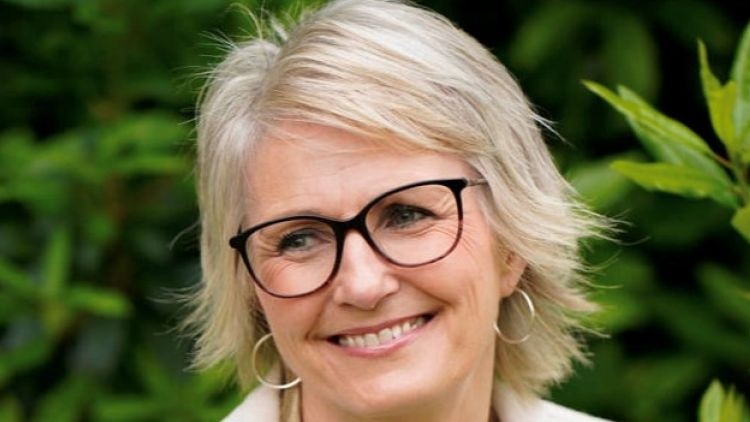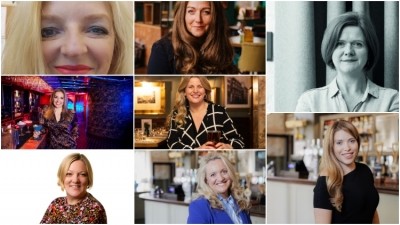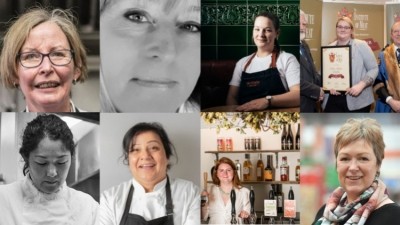INTERNATIONAL WOMEN'S DAY 2023 - OPINION
Why the hospitality sector must #EmbraceEquity

Before we can embrace equity, we need to know what it means… and yes, I’ve had to get my head around this too! Mention the phrase ‘equity in the workplace’ and chances are many people will immediately think we’re talking about equality. But in fact, the two terms are not interchangeable and it is important we differentiate between them.
Equality is when each person is given the same resources or opportunities, for example, everyone in a team attends a Leadership Programme. Equity however, recognizes that we don’t all start from the same base, with regards to education, financial security or professional career role models for example, and that targeted resources and opportunities need to be put in place to enable everyone to achieve their full potential.
And specifically, when we talk about equity for women in the workplace, we need to recognise the extent of the challenges and barriers that exist for women – unequal pay, career gaps due to starting a family, higher performance expectations, lack of representation, less funding invested in female entrepreneurs, ‘jobs for the boys club’, cultural expectations, gender discrimination, menopause to mention just a few – and then take steps to address those challenges.
So why should we, as a sector, address this issue of equity? Well, fundamentally we have a talent crisis. I’ve never known recruitment to be so challenging. We’re simply not attracting female talent and not sufficiently nurturing, developing and retaining the talent we have.
If we look at the male to female split within the hospitality sector, at GM level it stands at around 50/50. So far so good. When we look at the number of women progressing into deputy GM positions this figure drops to around 30%; at AM level it’s just 10 to 20%. Women are much more likely than men to report that factors such as their gender or being a parent have had a negative impact on their career progression.
Making changes
Research during the pandemic from WiHTL revealed more women are leaving the hospitality industry than joining, at every level except director level, reducing the talent pipeline of future female leaders. Women feel they don’t fit in to the macho culture that exists, can’t achieve a flexible approach to their working hours, their skill set is undervalued and their leadership is undermined.
My 2020 research challenges leaders to look in the mirror and see the culture that exists and accept it needs to change if we want to future proof a diverse workforce. It's vital that we attract, retain and progress talented women; that we shine a light on that talent, create equity by offering women targeted tools, coaching and sponsorship, and develop environments in which women, and other minority groups, can thrive and progress.
So how can we start to make the changes we need to see?
In writing this opinion piece, I reflected on my own career to help bring alive equity and an acknowledgement of privilege.
I left school at 17, both my parents were successful licensees, each running their own businesses. I lived rent free and worked as many hours as I wanted within the pub trade from an early age. My mother was an award-winning businesswoman and an excellent role model. I was extremely privileged to have her support my career, open doors and provide financial security that enabled me to take risks. Like the time I applied for a pub and they wouldn’t give me one as I was single… so I resigned. It wasn’t the only time I resigned either, when my values were compromised or my value not recognised I left too. I know I enjoyed privileges and financial security others didn’t have access to. Imagine having talent and not being fearful, just what success could be achieved!
When I had a family I shared responsibility with my husband and my mother, who was a fabulous grandmother; at times she was a housekeeper and looked after our children four days a week. Heaven only knows what would have happened to my career if I hadn’t enjoyed that privilege. I was also fortunate to have a series of managers who recognised my talent, sent me on tailored women’s programmes and supported my career progression, giving me the confidence to overcome the barriers and lack of equity I encountered in the workplace.
Tailored development
Leaders would benefit from looking at their own privilege, as I’ve done, recognising where, alongside their competence and hard work, they’ve been given opportunities and helped in their progression, and then consider how they could afford others the same equity.
Personal tailored development is essential to achieve equity, centred around individual needs, background, culture, lived experiences and capabilities. It’s unbelievable that as a woman with a successful career in hospitality I’ve rarely been asked about my personal career experiences. We all benefit from sharing, understanding other’s experiences and appreciating the barriers they’ve faced. We need to listen. And then we need to commit to positive change.
Organisations can close the equity gap by providing tailored development. Of course, cover the principles of leadership, but also how to navigate in a man’s world; context it important. How to self-advocate, promote strengths and stop minimising our value. How to apply for jobs you can only do 60% of. How to ask for a salary increase that acknowledges your value. How to delegate more tasks at home. To get comfortable with taking risks, and look for another job if your company doesn’t recognise your value. And this needs to start earlier in careers, not once women are at executive level. That’s like closing the gate once the horse has bolted.
Does this approach work? Yes! I’m frequently seeing senior women promoted and gaining salary increases after attending targeted BRILLIANT Women coaching and development programmes, women from national organisations, with big L&D budgets. By all means spend your money with me but honestly, with the resources and funding available, more could be achieved. As Maya Angeou said “Once you know better, do better”.
Organisations that recognise the ambition and untapped talent amongst their female workforce and change their behaviours and culture to support women, grow profits and succeed. This will only happen when those at a senior level feel comfortable acknowledging that not everyone is equal in terms of opportunity.
At sector level more could be done, we’re just not co-ordinated enough. We’d benefit from a joined-up approach and to pool resources, to promote career pathways and ensure the support is there to help our talented women succeed. Where are the rising stars of the sector and who’s recognising them? I remember undertaking research for the UK Hospitality Area Manager of the Year Awards, which has now ceased. Over an 8 year period, 1 in 5 finalists were women and 1 in every 2 awards were won by women. Yet all these women only enjoyed promotion once they left the business they’d won the award with, against a backdrop of 60% of men enjoying promotion within their organisation. What does that tell us?
More male allies around the board table are required to speak up, call out and ensure equity is in place, so it becomes an integral part of the sector and organisations’ strategies moving forward. When men speak out it has more impact and is taken more seriously, so come on you men, act now and let’s level the playing field.







